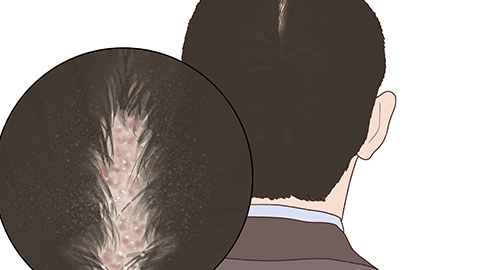What causes excessive dandruff?
Excessive dandruff may be caused by seasonal changes, poor lifestyle habits, dry scalp, seborrheic dermatitis, psoriasis, and other factors. Appropriate measures can be taken depending on the specific cause.

1. Seasonal changes: In winter, dry air can cause the scalp to lose moisture, leading to increased dandruff, dryness, and itching. It is recommended to use moisturizing shampoo to keep the scalp adequately hydrated. Conditioners containing hydrating ingredients such as glycerin or allantoin can help lock in moisture.
2. Poor lifestyle habits: Frequent熬夜, fatigue, neglecting scalp hygiene, or over-cleansing may damage the scalp and lead to increased dandruff, possibly accompanied by itching or hair loss. It is advised to improve daily habits, ensure sufficient sleep, maintain a positive mood, practice proper scalp hygiene, and avoid excessive cleansing.
3. Dry scalp: Dry environments, frequent hair washing, or using harsh shampoos can cause moisture loss from the scalp, disrupting normal keratinocyte metabolism and resulting in excessive dandruff. The scalp may feel tight or slightly itchy. It is recommended to use mild, moisturizing shampoos and conditioners, perform regular scalp hydration treatments, and maintain moderate indoor humidity.
4. Seborrheic dermatitis: This condition occurs when excess sebum production on the scalp creates an ideal environment for Malassezia fungi, triggering inflammation and accelerating the shedding of skin cells, which leads to dandruff. Symptoms may include red patches, itching, and an oily sensation. Patients may use medications such as desonide cream, hydrocortisone cream, or sulfur ointment as directed by a physician.
5. Psoriasis: Psoriasis is associated with genetic and immune factors. Abnormal immune activation causes skin cells to proliferate too quickly, leading to premature shedding of immature keratinocytes and excessive dandruff. Symptoms may include red patches, scaling, and itching on the scalp. Under medical guidance, patients may apply calcipotriol ointment, tacalcitol ointment, or tazarotene gel to relieve discomfort.
If any symptoms occur, it is recommended to seek timely medical evaluation and follow professional treatment advice to prevent disease progression.






